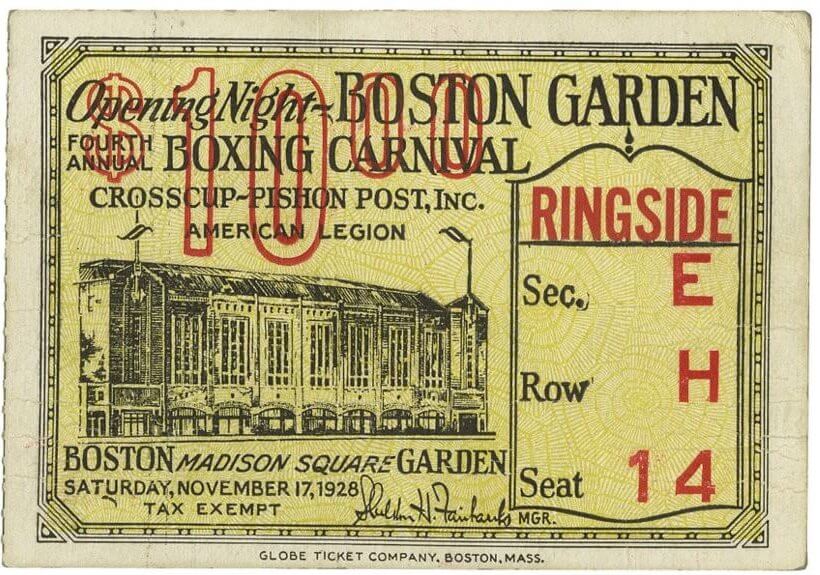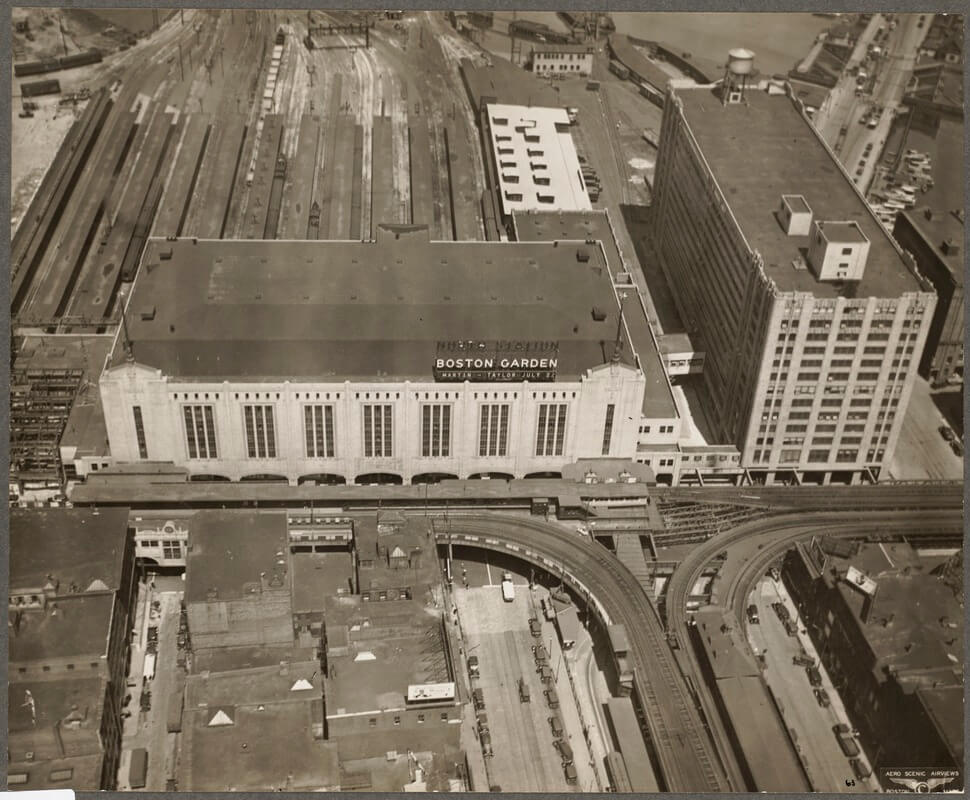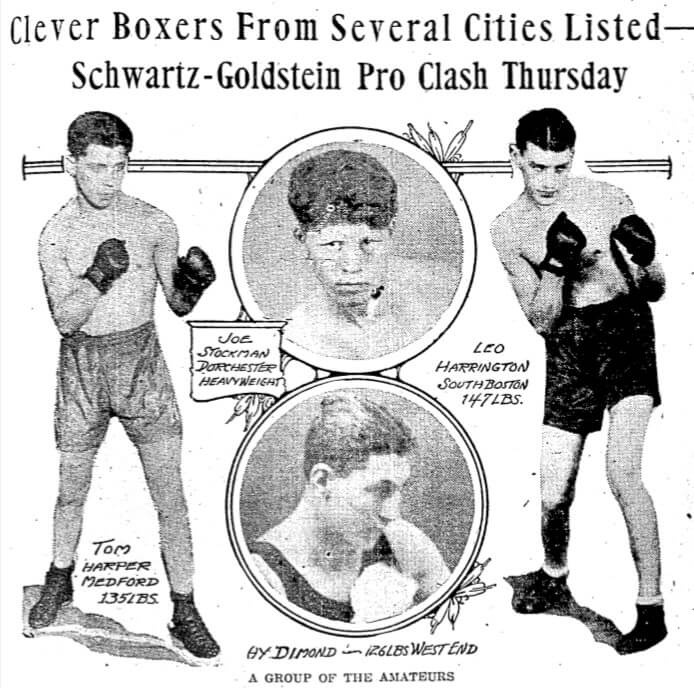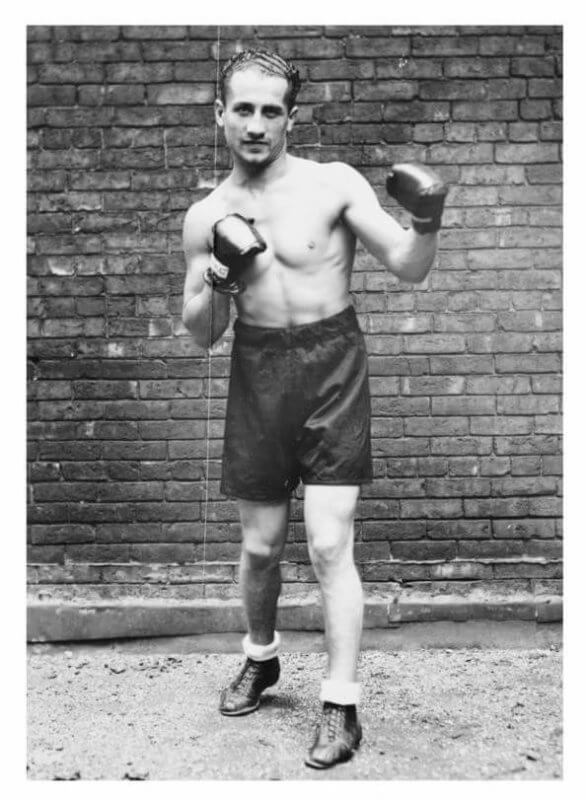Fight Night: West End Boxers featured on the Old Boston Garden’s opening night
When the gates of the newly-built Boston Garden opened in November of 1928, ticket holders flooded in to witness a world championship match befitting a celebration surrounding the city’s new sports venue. Local boxers from Boston also had the honor of appearing that night, including a teenage amateur champ from the West End named Arthur “Hy” Diamond. Diamond was just one representative of a West End sporting culture whose fame spread far beyond the confines of this small, immigrant neighborhood.
On November 17, 1928, the Boston Garden welcomed spectators for the very first time. While Dick “Honey Boy” Finnegan and world featherweight champion Andre Routis made headlines with their featured 10-round match, the very first bout in the newly constructed stadium featured West Ender Arthur “Hy” Diamond pitted against George Flate of the South End. Diamond emerged victorious in a four-round decision, kicking off the historic Saturday night in entertaining fashion.
Arthur Diamond was born sometime between 1910 and 1911 and grew up in the West End of Boston as one of four siblings. He was an active member of the West End House and participated in youth sports before he began boxing at the age 16 under his brother Hyman’s name. Tipping the scales at 135 lbs., Diamond won the New England Amateur Featherweight Championship in 1928 before entering the professional boxing scene.
Diamond won 10 straight boxing matches in 1928 to start off his professional boxing career, including a June 26th appearance at Fenway Park and the aforementioned November 17th victory at the Boston Garden. In 1930, he lost a bout to fellow Massachusetts native Harry Devine, who had earned an Olympic bronze medal in Amsterdam two years prior. Hy Diamond’s career lasted 5 years, taking him around the country to matches in Maine, Florida, New York and California.
Following his retirement from boxing in 1933, Diamond joined the army and served in World War II. After the war, he was employed as a driver for the Record American newspaper in Boston and as a guard at the Charles Street Jail, which was located at the corner of Charles and Cambridge Street. He married Sylvia Kaplan and had one son, Toby. Diamond passed away on March 14, 2002 at the age of 91.
Hy Diamond, however, was not the only West Ender to step into the ring on that November night in 1928. The following six-round matchup featured Eddie Curley, who would go on to lose to Johnny Sheppard from Woburn, Massachusetts.
Eddie Curley was born Issac Morochnik in Russia in 1905. Five years after his birth, his family immigrated to the United States and settled in the West End. He eventually changed his name to Curley after earning the nickname in boxing gyms due to his dark, curly hair. Curley maintained that he learned to fight to defend himself as a Jewish immigrant in the predominantly Italian neighborhood, and later took work as a newsboy in 1923. At the time, newspapers encouraged physicality amongst their paper boys, since “a kid who couldn’t defend his corner was a dead loss”. Curley began to make a name for himself in the ring, representing the United States in the 1926 Pan Am games and later entering the professional scene.
Curley was an archetypal featherweight fighter. He was a diminutive, yet powerful, 126 lbs. and amassed a 41-7 record during his 4-year boxing career. Curley fought at the Boston Garden six times between 1926 and 1930, and rejoined the newspaper business with the Boston American Record after retiring from the sport. He later returned to the ring as a referee, officiating bouts across the country in the 1950s and 1960s. Curley married Jean Roberts and raised two sons Gerald and Steven. He passed away on November 4, 1992 at the age of 87.
Curley and Diamond both represented the spirit of the West End, where countless young men participated in local sports events, but had to support their families by taking local working-class jobs. With the West End House on Eaton Street less than a quarter mile from the Boston Garden, it was fitting that the first boxing matches in the fabled sports arena featured West Enders who honed their skills just a few blocks away.
Article by Meyer Aviles, Thanks to Steve Curley for providing the concept for this article
Source: DiGirolamo, Vincent. Crying the News: A History of America’s Newsboys. New York: Oxford University Press, 2019. P.494; Edward M. Curley Obituary, Boston Globe, November 7, 1992; https://petejkaplan.medium.com/hy-hy-reggie-7522e9d47034; Heritage Auctions; The West Ender; fightsrec.com; jewsinsports.org; Midland Reporter Telegram; Telegram & Gazette











